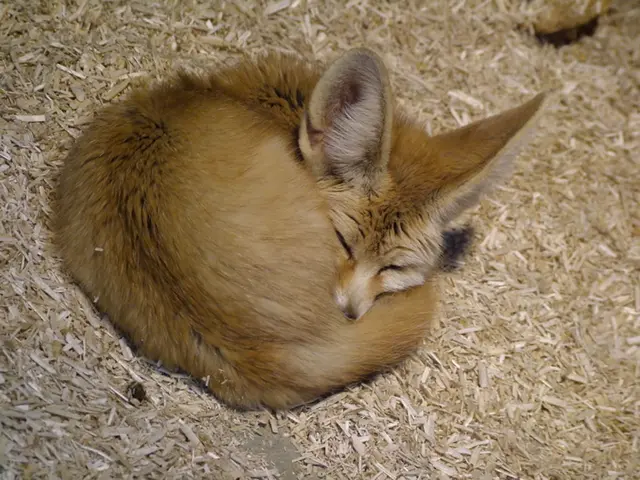Is it safe for dogs to consume ice cream, or should you abstain from giving it to them?
Dog Owners Should Exercise Caution When Sharing Ice Cream with Pets
With the soaring temperatures, many pet owners might consider treating their furry friends to a frozen delight by sharing their ice cream. However, it's essential to be mindful of the potential risks ice cream poses to dogs.
Ice cream contains dairy, which can cause discomfort or diarrhea in dogs as they have difficulty digesting it. Furthermore, some ice cream flavors can be hazardous to pets. Chocolate ice cream, for instance, may contain xylitol, a sugar substitute toxic to dogs, while other flavors might incorporate nuts that could be hard for dogs to digest.
Dr. Hannah Godfrey, a veterinarian, shared her insights on the matter. She described a instance where a dog continually suffered from diarrhea, only to find out the owner had been sharing their ice cream with the dog regularly. Upon stopping the habit, the dog's condition improved, and it lost a considerable amount of weight.
Ice cream is also high in sugar and fat, which can contribute to unwanted weight gain in dogs.
If your dog manages to sneak a taste of vanilla ice cream, it will likely be fine. However, should your pet consume something toxic, such as chocolate ice cream or ice cream containing xylitol, monitor them for signs of illness, including vomiting or diarrhea. In the event of either symptom, immediate veterinary attention is recommended.
In hot weather, alternative ways to cool dogs down exist. Puppy Scoops Maple Bacon Ice Cream Mix, for example, is simple to prepare using lactose-free milk and natural ingredients. Frozen dog treats can also be made at home with ingredients like low-salt chicken broth, yogurt, or puréed fruits.
Dr. Godfrey suggests offering your dog ice cubes made from low-fat, low-salt stock, or freezing their favorite toys for a refreshing treat. For entertainment, consider the Chilly Penguin, a penguin-shaped toy that can be filled with food, peanut butter, or water and placed in the freezer. Alternatively, the Nylabone Chill & Chew Freezer Toy, an ideal choice for puppies, requires no freezing and offers a flavorful and engaging option.
According to the American Kennel Club, other cooling strategies include ensuring regular access to fresh, cool water, providing shade and shelter, using cooling mats or bandanas, indulging in water play, and investing in cooling products specially designed for dogs.
Dr. Godfrey, a graduate of the Royal Veterinary College, has a penchant for soft tissue surgery, ultrasound, and canine and feline dentistry. After working at a busy mixed practice and an independent one closer to home, she transitioned to becoming an Editor for a global medical communications company, where she still does occasional locum shifts at local vet practices.
- Despite the summer heat, it's crucial for pet owners to avoid sharing ice cream with their dogs due to the risk of digestive problems and toxic ingredients.
- The dairy in ice cream can cause discomfort or diarrhea in dogs, and certain flavors like chocolate may contain harmful substances for pets.
- A vet, Dr. Hannah Godfrey, recounted a case where a dog's repeated diarrhea was linked to its owner frequently sharing ice cream, emphasizing the long-term health impact of such habits.
- Ice cream's high sugar and fat content could potentially lead to unwanted weight gain in dogs, making it an inappropriate treat.
- When a dog accidentally consumes vanilla ice cream, it may not be harmful, but other toxic treats should be closely monitored for symptoms like vomiting or diarrhea, requiring immediate vet attention.
- In place of ice cream, dog owners can create healthy and lactose-free frozen treats at home or offer alternative chilled options like ice cubes or frozen toys.
- The American Kennel Club recommends several strategies to keep dogs cool in hot weather, including providing ample fresh water, shade, shelter, and cooling products specifically designed for pets.








